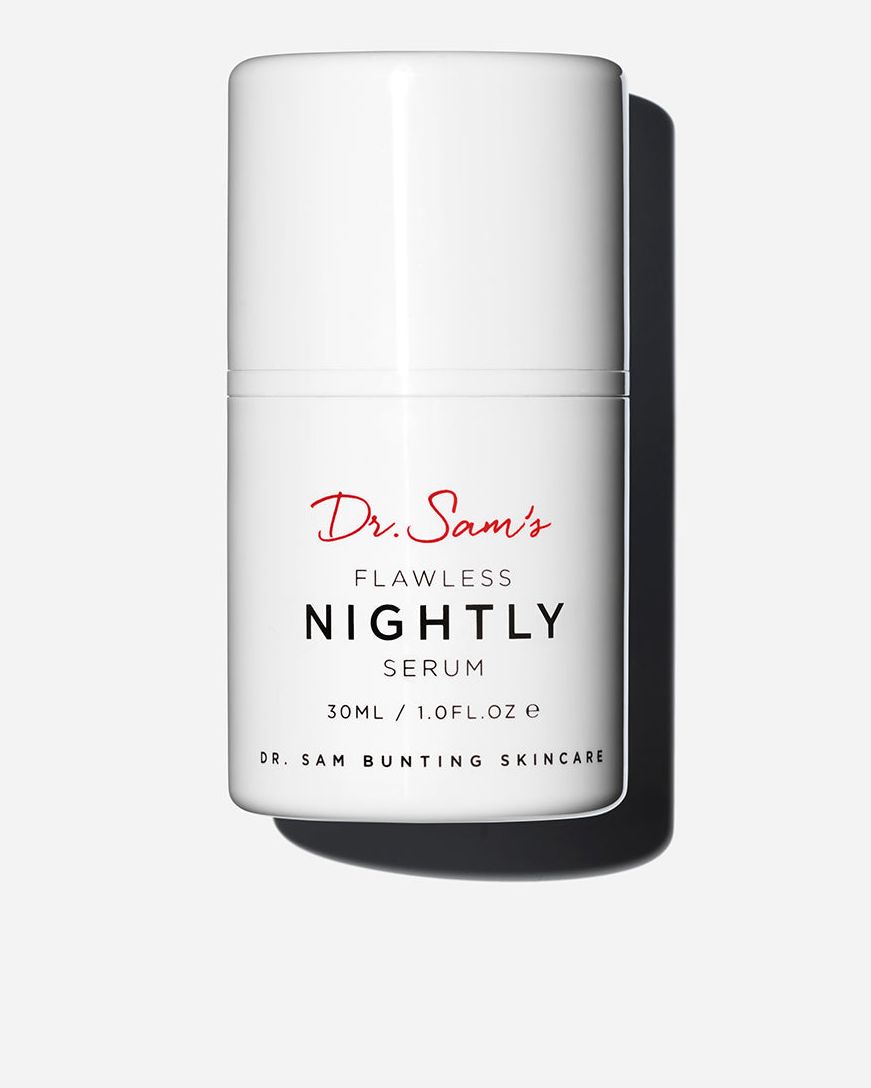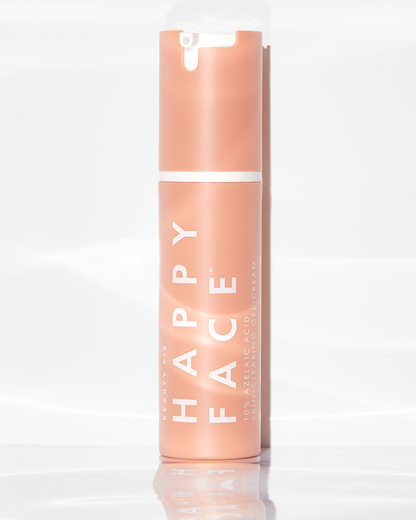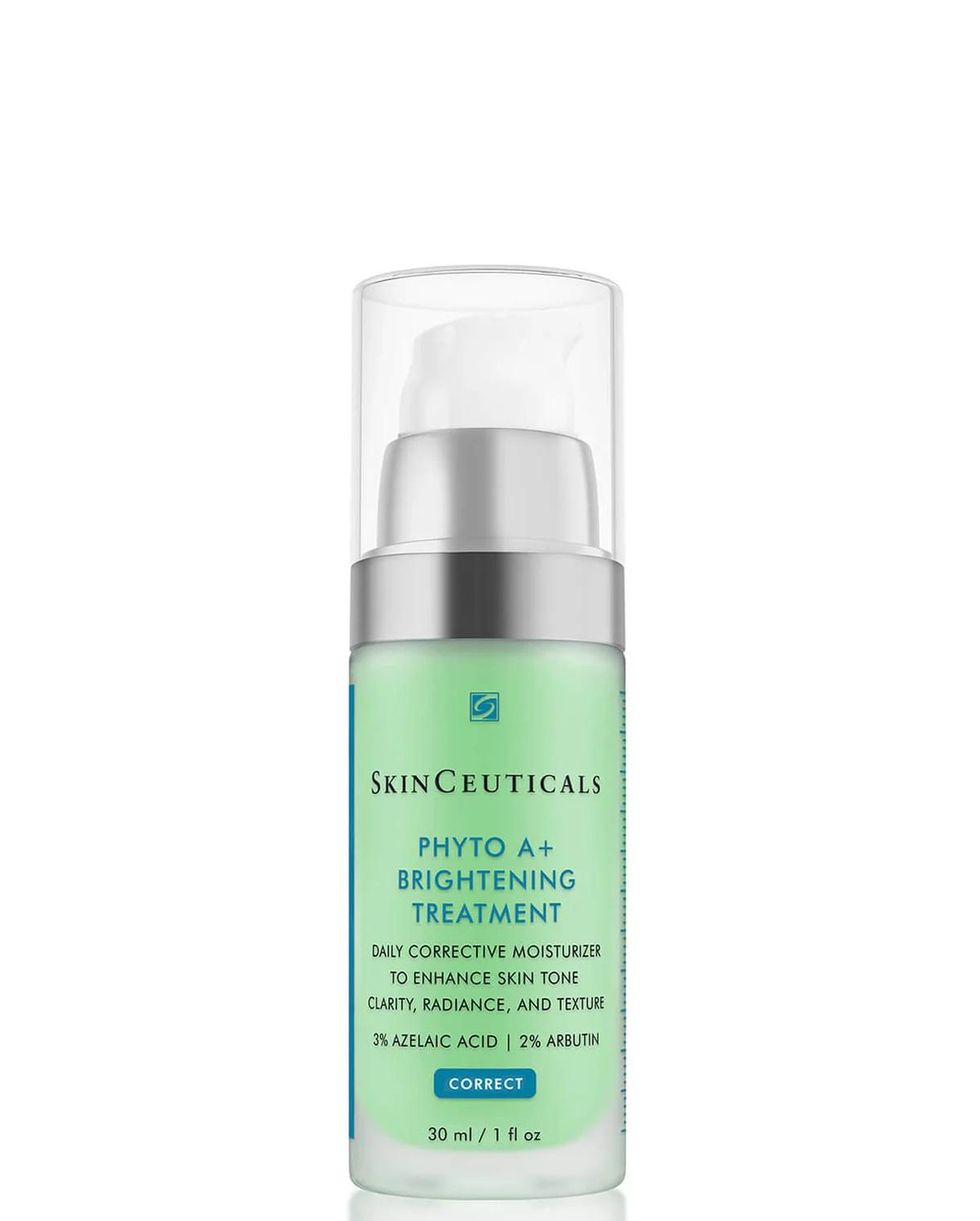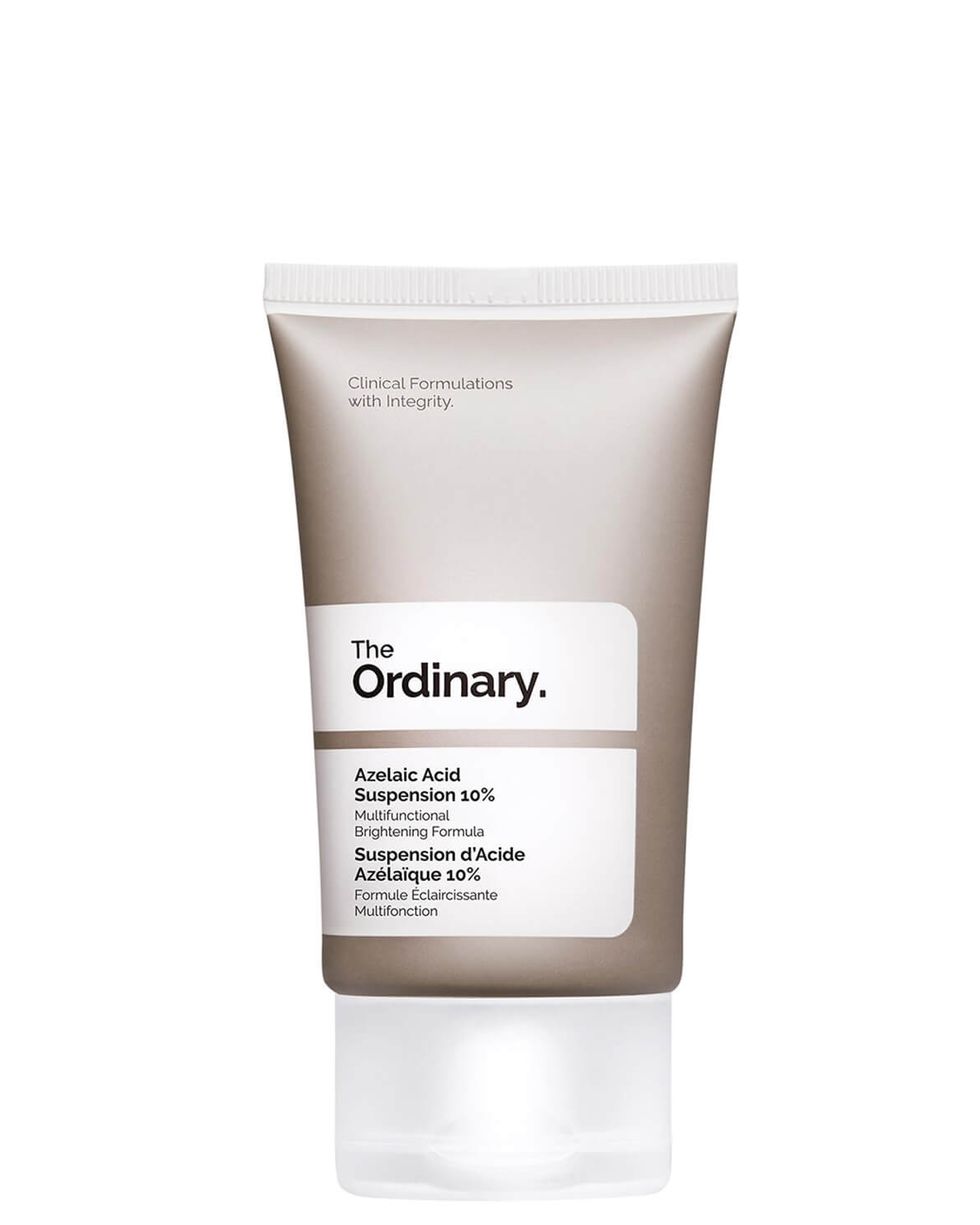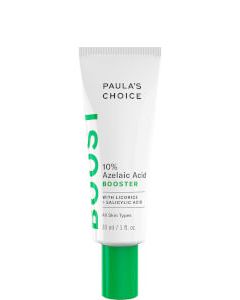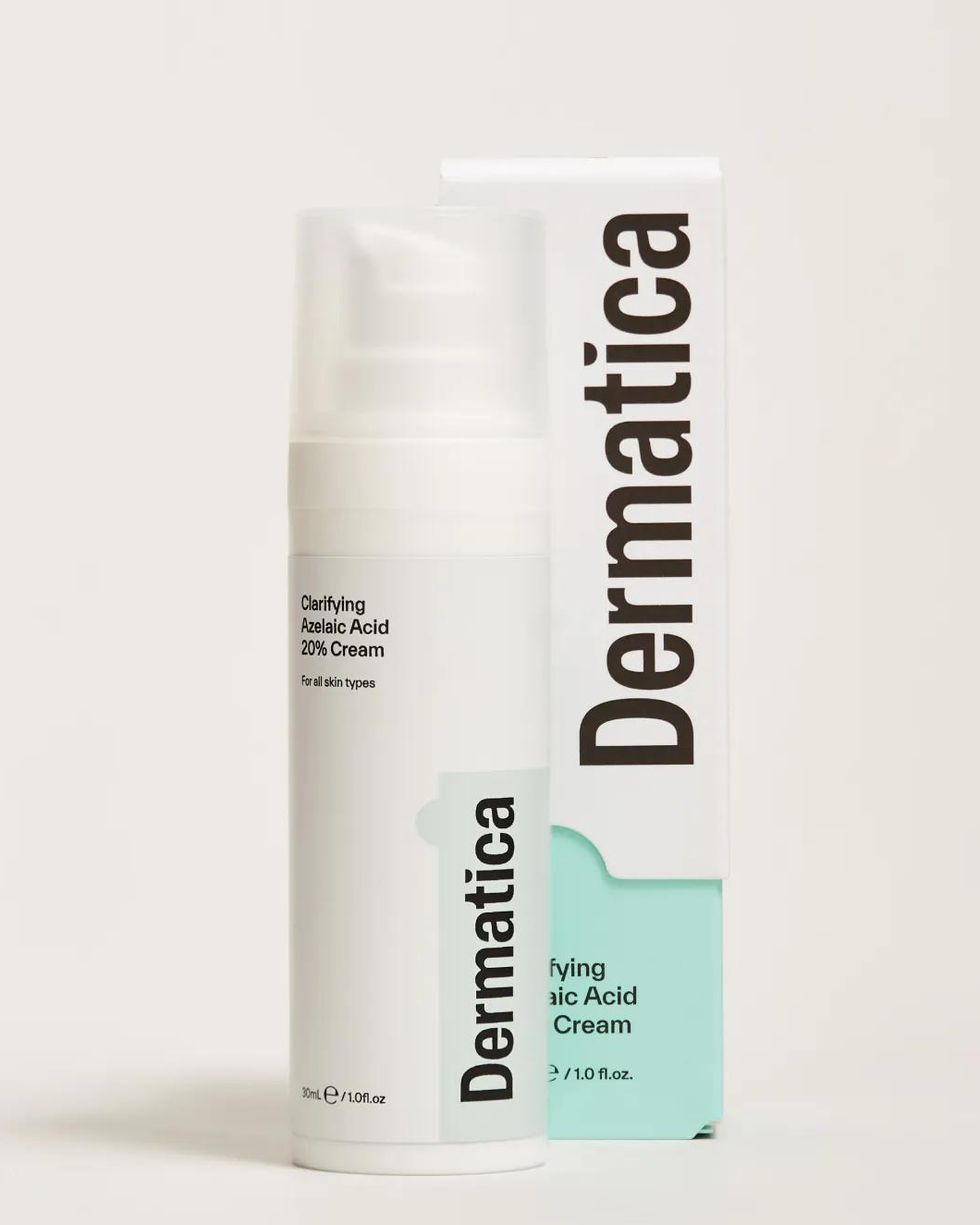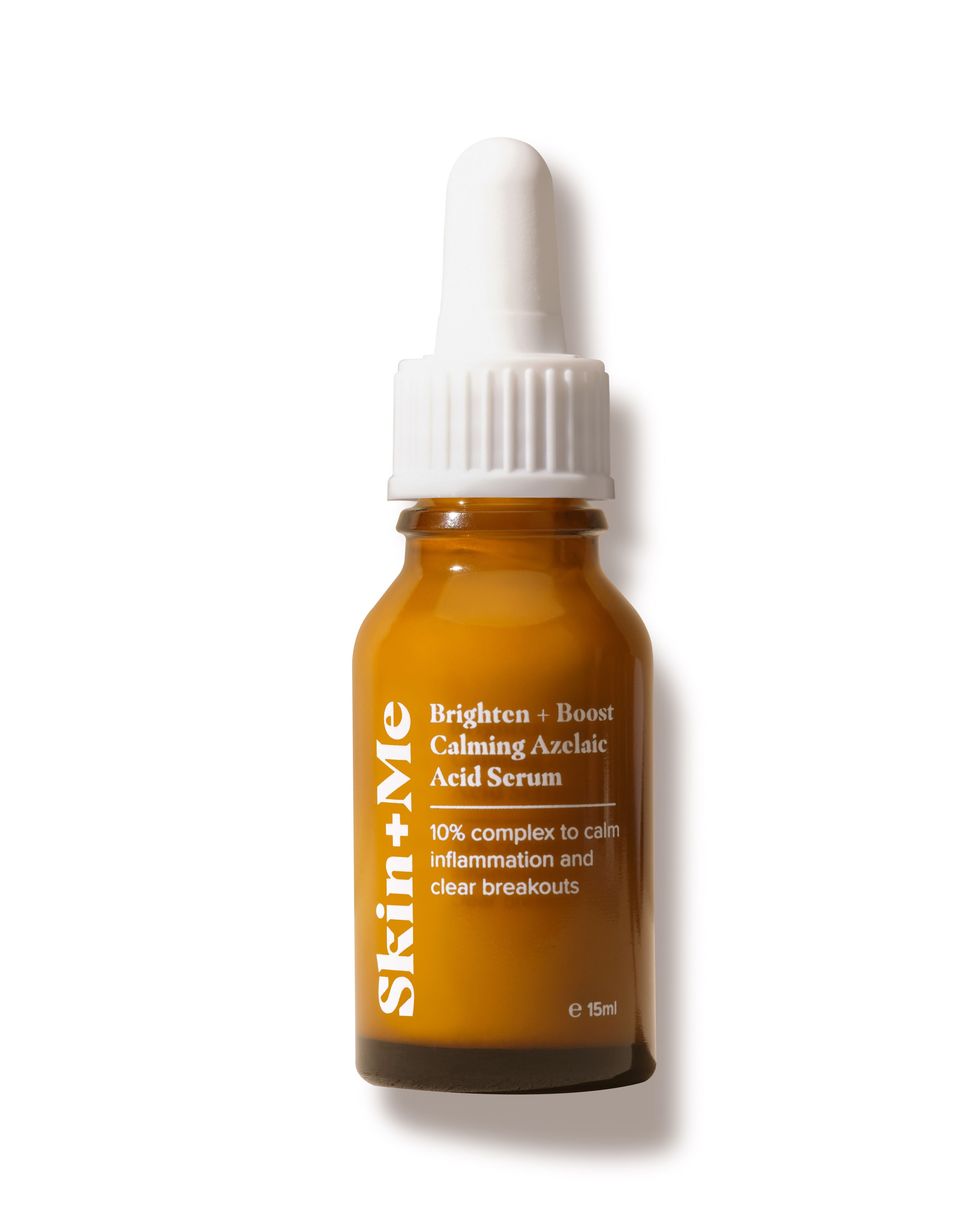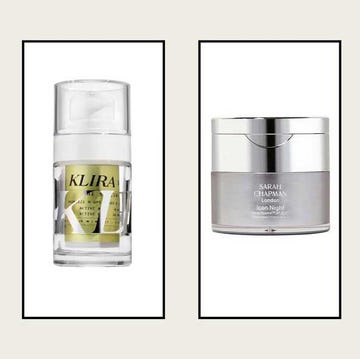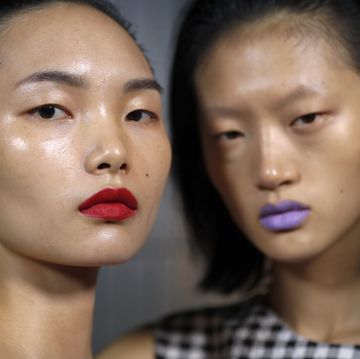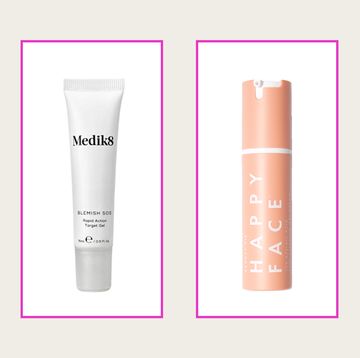They have an encyclopaedic knowledge when it comes to skincare and all the 'INCI' intel in their back pocket, so when a dermatologist tells you that there's one ingredient to add to your routine, stat, you take note – and the one to watch, according to derms, is azelaic acid.
First it was skincare stalwart Dr. Sam Bunting who predicted big things for azelaic acid, proclaiming the unsung skincare hero to be a promising alternative to using retinoids. 'I’d be hard pushed to meet someone who wouldn’t benefit from azelaic acid in some way in their routine,' she said. Then Dr. Justine Hextall informed me of its skin rejuvenating powers – azelaic acid, after all, can improve radiance and increase cell turnover, tackle hyperpigmentation and acne, improve rosacea and unclog pores – the list goes on.
Of course, unlike the skincare heavyweights that are taking centre stage in your current line-up like, say retinol, azelaic acid hasn't had nearly enough air time or education around its myriad skin talents.
Here, to decode the world of azelaic acid, we put all of our burning questions to some of the best dermatologists in the business. Could it really be a compelling alternative to your beloved retinol? And without some of the drawbacks, too... Let's find out.
What is azelaic acid?
'Azelaic acid is an active skincare ingredient which is derived from grains,' says Dr. Ana Mansouri, an aesthetic doctor and SkinCeuticals brand expert. Known as 'dicarboxylic acid', it's also naturally occurring and can be found in the skin's microbiome. 'It is an acid which has a gentle chemical exfoliation effect on the skin but also has an antioxidant effect,' she adds.
FIND OUT MORE ON ELLE COLLECTIVE
What does azelaic acid do for skin?
From treating rosacea to improving perioral dermatitis and tackling hyperpigmentation, the skin benefits of azelaic acid are far-reaching. ‘It's a fantastic multi-tasking anti-inflammatory ingredient that is particularly good for sensitive, redness and blemish-prone skin,’ agrees Skin+Me's dermatologist Dr Beiebi Du-Harpur. ‘Its prescription form (which comes as a 15% azelaic acid gel) has been a popular treatment for rosacea for many years.'
That's because, as Dr. Ifeoma Ejikeme, Simple's ambassador and medical skin expert, points out, azelaic acid has anti-inflammatory properties. 'This makes it suitable for soothing redness and irritation associated with conditions like rosacea.'
It doesn't stop there - azelaic acid is also a saviour for acne given its ability to regulate cell turnover. 'Azelaic acid can help to unclog pores, refine skin texture, and reduce the appearance of blemishes and breakouts, which is why it's particularly effective for those dealing with acne-prone or congested skin,'agrees Dr. Ejikeme. 'Indeed, azelaic is very useful for acne-prone skin as it helps to exfoliate dead skin cells, debris and sebum build-up while acting in an anti-inflammatory manner to target a number of skin concerns that are associated with acne,' adds Dr. Mansouri.
As opposed to some of the harsh skincare acids sitting on your skin 'shelfie', azelaic acid is a gentle exfoliant; it helps reduce acne-causing bacteria and remove the build-up of sebum but without causing further irritation. 'Overall, it helps to give radiance and smoothness to the skin texture while evening out skin tone and preventing congestion or breakouts,' says Dr. Mansouri. Ideal, after a seemingly never-ending winter has likely wreaked havoc on your dermis.
It's these reasons why dermatologists believe azelaic acid to be such a skincare essential; there's not a lot it can't do. 'Azelaic acid is brilliant for congested, oily skin types who suffer from blackheads, whiteheads or breakouts as it helps to unclog pores and fight acne-related inflammation,' shares Dr. Mansouri. 'It's also very useful for hyperpigmentation concerns to even out skin discolouration, not to mention it's particularly gentle for sensitive skin and is also pregnancy-safe as a single ingredient.'
Can you use azelaic acid as an alternative to retinol?
As for whether azelaic acid can be used as an alternative to retinol, that all depends on your skin concern in the first place. 'If your concern is fine lines and wrinkles, I wouldn’t use azelaic acid as a treatment,' shares Dr. Du-Harpur. 'However, if you are using retinol because you are concerned about some blemishes and its associated pigmentation, it may be appropriate to use azelaic acid instead.' In fact, using azelaic acid for acne and blemishes could prove more beneficial for your complexion given that it's more gentle than other chemical exfoliants with none of the initial irritation often synonymous with using retinol.
Can you use azelaic acid every day?
In even more good news, incorporating azelaic acid into your skincare routine is relatively simple and can be used in a number of different ways.'Depending on the strength of the formulation and your skin's tolerance, it can be used once or twice per day,' says Dr. Mansouri. You can use the ingredient either morning or evening, every day, and for those whose skin can tolerate it, even twice per day. 'Start with a small amount and gradually increase frequency to avoid irritation, especially if you have sensitive skin,' says Dr. Ejikeme.
She recommends using azelaic acid after cleansing and toning, but before moisturising in the morning. 'In the morning it can be applied on top of a vitamin C serum and underneath an SPF 30-50, while in the evening it can be applied underneath your moisturiser,' agrees Dr. Mansouri.
As azelaic acid does act as a chemical exfoliant, when the cell turnover is accelerated, it may cause a mild 'purging' effect for those with very sensitive skin. 'This is usually a temporary process that shouldn't cause any reason for concern as long as it's used cautiously to avoid overly irritating the skin,' notes Dr. Mansouri.
What should you not mix with azelaic acid?
There is always a certain fear that comes with adding a new skincare ingredient to your carefully considered and well-researched line-up. Much like adding a new ingredient to a failsafe recipe, you need to know that it's going to work in harmony with its fellow components and not throw everything off balance (think: irritation and dreaded pilling).
Most experts will advise against mixing azelaic acid with its fellow acid-based family, for instance, AHAs and BHAs, like salicylic acid and glycolic acid due to its exfoliating properties.
Azelaic acid can be used alongside retinol but this depends on your tolerance and should be used at separate times. For instance, you could use azelaic acid in the morning and retinol at night. 'As retinol may make your skin temporarily more sensitive to other active ingredients, it's worth proceeding with caution and avoiding the combination if your skin is feeling irritated,' adds Dr. Mansouri.
Meanwhile, niacinamide and azelaic acid are a match made in heaven, particularly for anyone dealing with hyperpigmentation and acne. 'These two formations can work synergistically to support the skin barrier and soothe inflammation in the skin,' notes Dr. Mansouri.
With promises of a more radiant, less blackhead-ravaged and clearer complexion, there's plenty of reason to get on board the latest derm-approved buzzword. It's also cropping up in a number of cutting-edge skincare formulations, too. SkinCeuticals harnesses the power of azelaic acid within its Phyto A + Brightening Treatment, which helps improve texture, improve imbalanced skin and leave your skin looking brighter. Meanwhile, Dr Sam's line-up of simplistic but efficacious serums have azelaic acid front and centre of the formulations. And, as more of us start to reap the benefits of this multi-action ingredient, it's likely to dominating skincare shelves and algorithms even more soon.
ELLE Collective is a new community of fashion, beauty and culture lovers. For access to exclusive content, events, inspiring advice from our Editors and industry experts, as well the opportunity to meet designers, thought-leaders and stylists, become a member today HERE.


